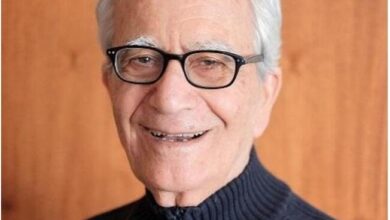
The Decline and Failure of Western Liberal Democracy.
Stuart Booth.
“Western liberal democracy leads to polarisation and social division, the election system leads to short sighted decision making neglecting long term national development and the fundamental interests of the people.”
This essay will consider the claim made by China on western liberal democracy and as Mao taught search for truth from facts.
“ … the much admiredAmerican system of checks and balances can be seen as a ‘vetocracy’: it empowers a wide variety of political players representing minority positions to block action by the majority and prevent the government from doing anything…….. Our political system makes it easier to prevent things from getting done than to make a proactive decision.”
Fukuyama (2013)1
This also applies to the UK; take the building of HS2 for instance costing billions to date and now longer to be completed.
More importantly, some of the political players mentioned by Fukuyama are in fact very powerful lobby groups. Take for instance the gun lobby in the US (The National Rifle Association of America) this group has made it impossible for the US Congress to vote for gun control . Any member who votes for gun control will find that in the next election the opposition will be financed massively by this lobby. The same is also true for any member of congress who does not support Israel, they will succumb to the power of AIPAC ( The American Israel Public Affairs Committee) or the 10 million strong christian zionists (puritan evangelicals) . The same situation pertains in the UK where the main political parties have groups like the Labour Friends of Israel; MPs who join these groups are financially rewarded , good career prospects and other perks and benefits which causes them to vote and act in favour of Israel before their own constituents and country.
It is debatable that liberal democracy always provides leadership, there are examples from the past but with the speed and power of the media it would seem that leadership is being replaced by showmanship that does not always produce results, one could point to the election of Boris Johnson in the UK for instance who could talk the talk and bluster, yet deliver little.
This lack of real leadership, a ‘showbiz democracy’ without long term strategic planning has degenerated into elections which depend upon marketing and public relations ruses resulting in image not substance.
In Southern Europe the countries of Greece, Portugal, Italy and Spain all had financial and debt crises in succession. But, even Northern Europe including France, the UK and Germany are experiencing real issues with growing poverty and communities depending upon foodbanks.
At one time political parties had principles and tried to educate voters on the merits of those principles and approaches to achieving their respective goals. This has inevitably degenerated into the demeaning process of politicians trying to curry favour with voters by offering more tax cuts and various other benefits exhausting national treasuries. Silvio Berlosconi of Italy would be a case in point; a media mogul able to promote imagery and voted in 3 times despite all sorts of scandals and trivia in his promises. This has led to an electorate no longer politically educated but choosing the best showman. An electorate that is more concerned with and votes more on reality TV shows than national elections. Thus western politicians are more concerned with the polls, the next vote count rather than the long term good of their nations.
The voting systems in much of Europe lead to coalitions from a multiparty system often resulting in chaos , ineffective delivery on promise and in the case of some southern European nations ,notably Italy, constant changes of government. In Britain the voting system is known as first past the post rather than proportional representation. It does not produce fair representation, but, it was claimed, meant a strong and stable government not succumbing to the chaos of coalition governance. However this is no longer the case as people vote strategically rather than on old party allegiances; thus a coalition between Conservative and Liberal Democrats occurred in 2010. The Conservatives won outright in 2015 but with the polarisation and social division of Brexit, the result was a splintering of that once successful party into warring factions producing five different Prime Ministers and a succession of Chancellors reducing the nation to a laughing stock. A Labour government was then elected with a massive majority but a huge decline in the actual popular vote calling into question once again of fair representation since millions of votes went to other parties resulting in very few seats in Parliament.
In liberal democracies short term planning is the rule rather than the exception , planning only as far as the next election (5 years at most) or just the next 100 days.Many people in the West would concur that corporations and companies have short, medium and long term plans but the parties and hence countries don’t As previously mentioned in the UK the HS2 rail network has been abandoned unlike in China with thousands of miles of high speed tracks and trains being built every year.
Returning to the question of powerful lobbies it would now be true to say that in western democracies democracy itself has been kidnapped by well organised interest groups with a predominance of capital power over political and social powers.The US ,followed closely by the UK, has become a society managed by a moneyed aristocracy that uses its capital to make major social and political decisions . This class has seen the greatest transfer of wealth ever been taken.
“The liberties protected by the principle of participation lose much of their value whenever those who have greater private means are permitted to use their advantages to control the course of public debate.”
Rawls ( 1971 )2
Unfortunately this was allowed to happen in 2010 with a landmark ruling by the US Supreme court. Citizens United vs. Federal Election Commission which removed the restaurants on the amount of money used to influence the political process allowing unlimited sums for political tools calling for the election or defeat of individual candidates .
Rawls goes on to point out that
“ Eventually, these inequalities will enable those better suited to exercise a larger influence over the development of legislation. In due time they are likely to acquire a preponderant weight in settling social questions….in regard to those things that support their favoured circumstances.”
Rawls ( 1971 )3
However we do not need Rawls to point out these failures because as far back as 1848 Marx and Engels famously pointed out that ;
“The executive of the modern State is but a committee for managing the common affairs of the whole bourgeoisie.”
(Marx and Engels 1977)4
The election of Donald Trump in 2024 has now meant that his chosen donors are also in the driving seat of government. They are not in the back room any more but up front destroying any illusions of who rules. The gloves are definitely off as people like Elon Musk become members of the cabinet and start to destroy long established public institutions . These institutions make up for what little welfare benefits exist in the US, driving more into poverty. ( One example is the Public Health system in the US, 40 million cannot afford any form of health insurance, of those who can thousands go bankrupt every year in trying to pay hospital bills) The US has seen a decline in its middle class and in many cities there exists third world areas of massive poverty and homelessness. The inclusion and support given to Trump by billionaires as Mark Zuckerberg, Musk and Jeff Bezos also works in their favour as any restrictions on their capital power are likely to be removed enabling them to acquire even more wealth and the likely improvisation of more swaiths of the general population.
An irony is that many Americans still believe in the American dream, thus of the billionaires already mentioned, some believe that they too can ‘make it’. They also believe that liberal democracies stand on the right side of history whereas communist and socialist systems on the wrong side; a conviction reinforced by the collapse of the Soviet Union. The collapse led to the erroneous belief that Liberal democracies had totally triumphed leading to Fukuyama’s claim about the end of history.
Whilst many in the West believe in liberal democracy (many others don’t or are beginning to question) this can be explained by the Marxist notion of false class consciousness. Marx put forward the idea that in every epoch the ruling ideas of the ruling class become the ruling ideas of society. An example is the feudal ideas of God given stations in life also embedded in the Victorian hymn ‘All things bright and beautiful’ One verse proclaims “ The rich man at his castle the poor man at his gate. God ordered them high and lowly according to their estate.”
That many still believe in Western societies aims is further elaborated by Antonio Gramsci in the concept of cultural hegemony where the ideas of the ruling class permeate into ‘common sense’ and the accepted way.
However as systems fail and people disengage from the liberal political process, some will see contradictions and critically question the status quo.
One other assumption made by leaders of Western democracies is that their model is best and should be taken up by the rest, not just the west. (particularly after the end of history assertion) Actually more about imposing democracy on other states and nations; in reality imposing a neoliberal economic order or should it be a neo-colonial order ?
Many societies have tried Western democratic systems eventually realising they did not fit them. Fledgling democracies in developing countries often struggled to maintain stable governments hence then failing to achieve in tasks of development. Clegg point out that ;
”Many operate only partial democracy, and are in a mess, as political parties and voting processes get tangled up religious, tribal and ethnic divides, or are easily hijacked by elites- the middle classes, Western educated technocrats and professionals, and landed interests- so creating political systems riddled with corruption, elitism and even criminalisation of politics as in parts of India.”
( Clegg 2009 )5
It was certainly the case when western democracy was imposed upon Iraq (which did have a Parliament previously ) by the US administration and has not yet recovered from that chaos. Libya too is a broken state after regime change , disguised as liberal humanitarian intervention, where after the removal of Gadaffi it splintered into civil war and war lord led factional fighting from which it has still not recovered.
It is not only developing states but also Western states themselves ( as previously discussed) who are experiencing corruption on scales not seen before as constitutional balances are weakened in the clamour to win votes.
China attempted a Western style democratic system in 1912 which ended in chaos and a break up of the nation into warlord factionalism and further weakness to foreign exploitation. Zhang claims it was a devastating catastrophy , elucidating further:
“The country was soon plunged into chaos and civil war, with hundreds of political parties vying for power and with warlords fighting one another with the support of various foreign powers. The economy was shattered and tens of millions lost their lives in the decades that followed. That lesson remains so sharp that even today ordinary Chinese are most fearful of ‘luan’, the Chinese word meaning chaos. Independent opinion surveys in China show that public order is generally ranked as the most cherished value in China. “
(Zhang 2016)6
China has no desire to repeat this, instead much preferring stability and progress. Indeed as Mahbubani point out
“The Chinese political system is strong and resilient rather than fragile “
( Mahbubani 2020)7
Western commentators would accuse China of not having democracy but rather an autocracy. ( Forgetting that when cultural hegemony fails and multitudes question the state , it will reply with the removal of civil liberties and unconstitutional violence).
Mahbubani further points out that:
“The argument used to run that America with a healthy flexible democracy as opposed to a rigid inflexible bureaucratic communist party system would always win out. But what if there is a supple flexible genuinely meritocratic political system in China and a rigid inflexible plutocracy and oligarchy in the US.”
( Mahbubani 2020 )8
The well repectedl Chinese International Relations commentator Zhang Weiwei points out that the actual success of the Chinese political system may bring about a paradigm shift from that of “ ‘democracy vs. autocracy’ to ‘good governance vs. bad governance’”
(Zhang 2016)9
He further points out that good governance can be of a Western style or a non-Western style system as with Singapore and China.
Mahbubani concurs and states that:
“ In the Western political context it is almost inconceivable for the same political party to remain in power for several decades …….. The Peoples’ Action Party of Singapore has been in office from 1959 over 60 years. The cultures of East Asia are happy and comfortable with political continuity and stability- and it works. “
( Mahbubani 2020 )10
The party system in China also avoids ‘partial interest parties’ which do not assume ultimate responsibility for the overall interest of the nation.
It also avoids showbit and nonsense parties ( In the UK there is The Monster Raving Loony Party and a Lord Bin which trivialises the vote that was hard won over decades with blood and tears )
China also has consultative democracy not only in the political domain but also in the social and economic spheres. In the political domain it also has a decision making process known as neo-democratic centralism. This is an improvement upon the old soviet style which was more to do with centralism than democracy.
Thus there is procedural and institutionalised accountability, “ under which a typical major decision like a nation’s five year plan for development takes about one year and a half of extensive and interactive consultations at various levels of the Chinese state…….. Going back and forth until a broad consensus is reached and final decision made.” (Zhang 2016 )11
This also allows for long term planning for future and next generation.
Meritocracy is also a part of the institutional arrangements ,originally an ancient practice of Keju i.e. selecting officials through public examinations, who then stand for election. The Communist party recruits only the best graduates . Political reforms ensure accountability, competition and limits on power.
Thus Chinese Democracy is a whole process not just at elections but through participation in national and social governance, select and elect.
Clegg explains “ …. Western style democracy is neither feasible nor desirable : China instead takes its own road to strengthening people’s democracy. …. As the 2005 White Paper on Democracy states , with public ownership in the dominant position as the economic foundation of the socialist system, China’s democracy is prevented from being manipulated by capital. This is what is meant by the commonly used phrase ‘the people are the masters.’
( Clegg 2009 )12
In an article in the Morning Star newspaper Clegg explained how the National People’s Congress works and although dismissed by western commentators as a ‘rubber stamp Parliament’ points out that laws passed by the NPC ”undergo a prior long and arduous process of deliberation , consultation and revision to ensure disagreements and differences are addressed and ultimately consensus is reached.”
( Clegg 2025)13
The congress operates through tiers reaching from townships, counties,provinces to national level. She further explains that the NPC system” involves nearly 3 million deputies 95% at township and county levels: non Communist Party members make up at least a third of these.”
(Clegg 2025)14
Nominations for congress deputies are encouraged from workplaces, rural and urban communities, trade unions, womens and other mass organisations Frontline workers,farmers and national minorities are all represented up to national level under a quota system.
The Chinese People’s Consultative Council also works through parallel tiers serving in an advisory and consultative capacity. It includes eight democratic parties which originally took part in the Chinese revolution and today continues to represent intellectuals and professionals. It can be loosely compared to the House of Lords in the UK as the second chamber for advice and scrutiny. Unlike the House of Lords “there is a five year term, and usually there is a limit of three terms.”
(Daokui Li 2024)15
The irony is that the House of Lords was until the 1990s a semi feudal organisation with landed gentry as in its name Lords.The claim was that they could be neutral and objective in their scrutiny, until matters of land use came up since some of these had not paid land taxes for one thousand years! Though no longer the case it has merely become a repository for party political cronies, some of whom substantially financed the relevant parties.
One final remark in the discussion on Chinese democracy needs highlighting
In a country that has brought 800 million people out of poverty since the 1970s.
This final consideration for the future is given by Martinez:
“Meanwhile in the advanced capitalist countries, where the capitalist class is the ruling class, and where neoliberal economic theory has dominated for the last four decades , we are seeing an alarming rise in poverty and inequality. Rather than pursuing common prosperity, the US and its allies are drifting towards mass destitution. This disparity highlights that China’s continuing achievements in poverty alleviation are a function of its socialist system. As Deng Xiaoping said in 1987, ultimately , “ only the socialist system can eradicate poverty.”
( Martinez 2023)16
That surely along with peace, stability and prosperity is the purpose of democracy.
References.
- Fukuyama Francis , “ Why are we still fighting over Obamacare? Because America was Designed for Stalemate,” The Washington Post Oct. 6 2013 citedin Zhang Wei Wei The China Horizon. Glory and Dream of a Civilisational State. World Century Publishing (2016)
- Rawls John A . A Theory of Justice Cambridge M.A: Belknap Press 1999 cited in Mahbubani Kishore . Has China Won. The Chinese Challenge to American Primacy Public Affairs Books New York 2020.
- Rawls ibid cited in Mahbubani ibid.
- Marx K. and Engels Manifesto of The Communist Party. Progressive Publishers Moscow 1952.
- Clegg Jenny. China’s Global Strategy Towards a Multipolar World. Pluto Press 2009.
- Zhang ibid
- Mahbubani ibid.
- Mahbubani ibid
- Zhang ibid
10 Mahbubani ibid
11) Zhang ibid
12) Clegg ibid
13) Clegg Morning Star March 13th. 2025
14) Clegg ibid
15) Daokui Li David China’s World View. Demystifying China to Prevent
Global Conflict. Norton 2024
16) Martinez Carlos The East is Still Red. Chinese Socialism in the 21st.
Century. 2023





